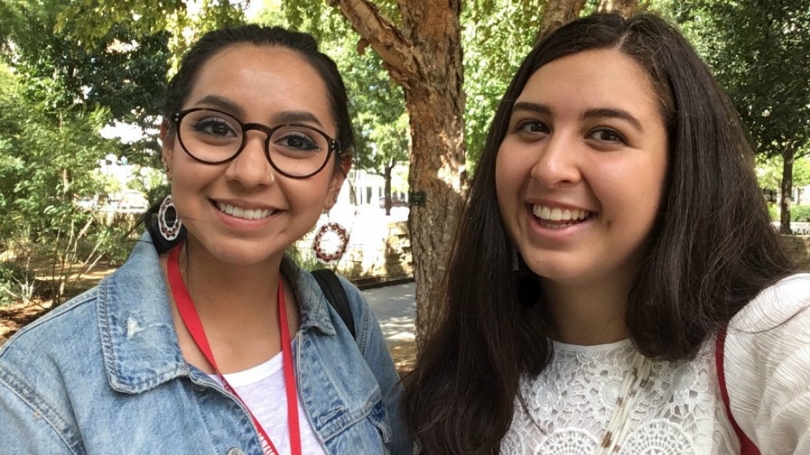
- About
- Advising
- Community & Leadership
- Education
- Advocacy
- News
Back to Top Nav
Back to Top Nav
Back to Top Nav
Back to Top Nav
Back to Top Nav
On October 4-6th, four members of the Dartmouth American Indian Science and Engineering Society (AISES) attended the AISES National Conference in Oklahoma. This annual conference is a three-day event that focuses on educational, professional and workforce development. The conference is open to Native/Indigenous high school and college students, as well as educators, professionals, tribal nations and enterprises, universities, corporations, and government agencies.
Each year, members of the Dartmouth AISES chapter anticipate the conference and work hard to secure grants and scholarships that will allow them to attend. We asked some of our attendees to reflect on their conference experiences. Here is what they had to say:
Madilyn Short, ‘20:
It was a really great experience, I got so much more out of it than I expected, and I would encourage anyone to go! It was very encouraging and empowering to be there with everyone. I also gained new insight about potential future internships and post-bacc programs that I didn't know about before. I think the best part of the conference was the face-to-face contact that we were able to have with leaders in the STEM field. I went to a talk by Dr. Milgram who is the director for the Office of Intramural Training and Education at the National Institutes of Health and was able to personally introduce myself to her and get her advice.
Muriel Ammon, ’21:
My name is Muriel Ammon. I am Tsnungwe and Hopi, and a ’21. I was fortunate to recently attend the 2018 AISES National Conference in Oklahoma City, with three other NAD students. This conference helped me refocus my academic goals and allowed me to meet many amazing Native students and professionals in STEM. I met with representatives from several graduate school programs, including UC Berkeley, UC Davis, Stanford, and Yale. I have been inspired and hope to continue my education after Dartmouth, hopefully studying linguistics and education. Before the conference, I had no idea what applying to graduate school entailed or how I should start preparing myself. Now I have a concrete checklist to start working on this year. There were several speakers, even one from the Hupa tribe (where I am from) who was focusing on our pileated woodpeckers. But the talk that resonated with me the most was on language revitalization. Alaina Maker, the Osage Nation Princess and Osage Nation Immersion School teacher, helped foster a discussion in our session about the reasons our languages are in the states that they are, and how we can incorporate language use into all parts of our life. Particularly for an immersion school, language teaching cannot be the same as the way foreign languages are taught in the U.S. Instead, they must incorporate the maths and sciences as well. Ideally, indigenous knowledges and epistemologies are also incorporated into these curriculums. It was so special to be around all of these amazing Native scholars, and inspiring to hear what they have done. We met John Herrington, the first Native to go to outer space, and his speech to us was so uplifting and inspirational. I am incredibly thankful to have had this experience, and appreciative of the Native American Program at Dartmouth for making it possible for me to attend this conference.